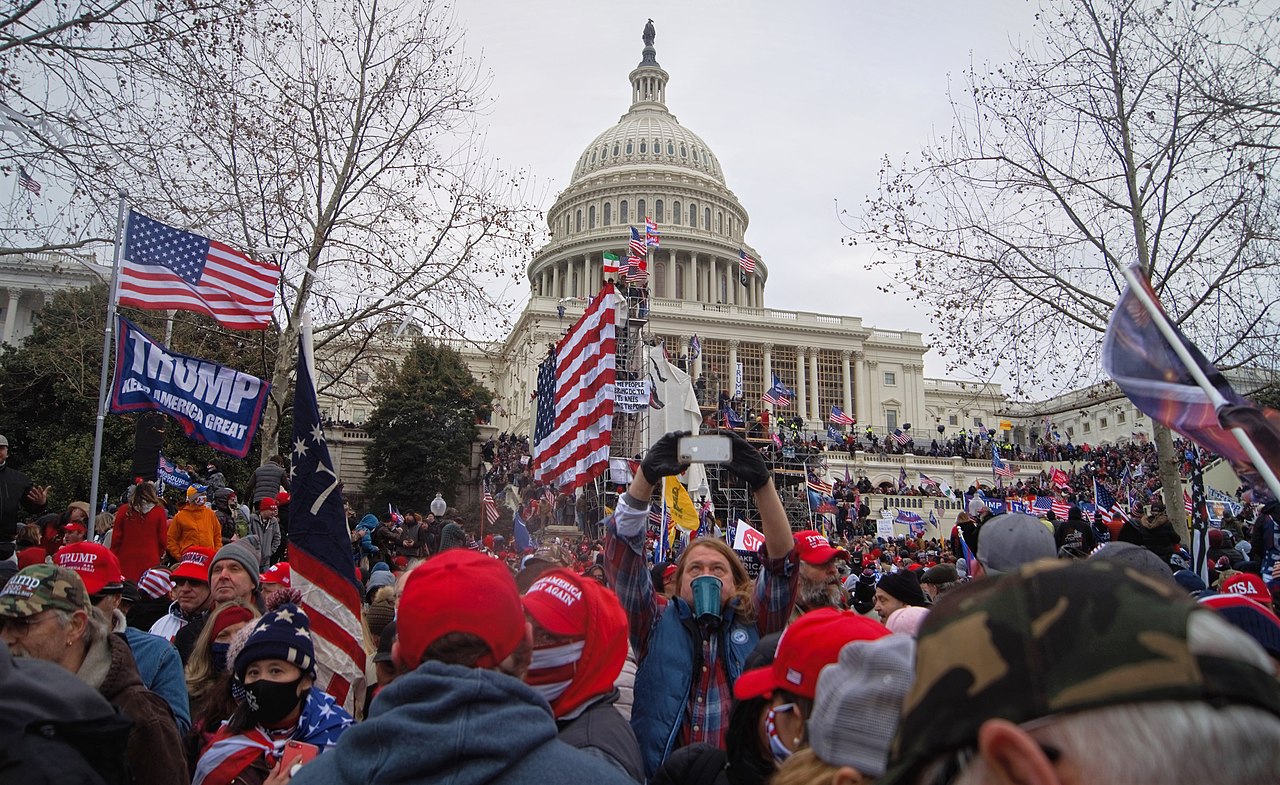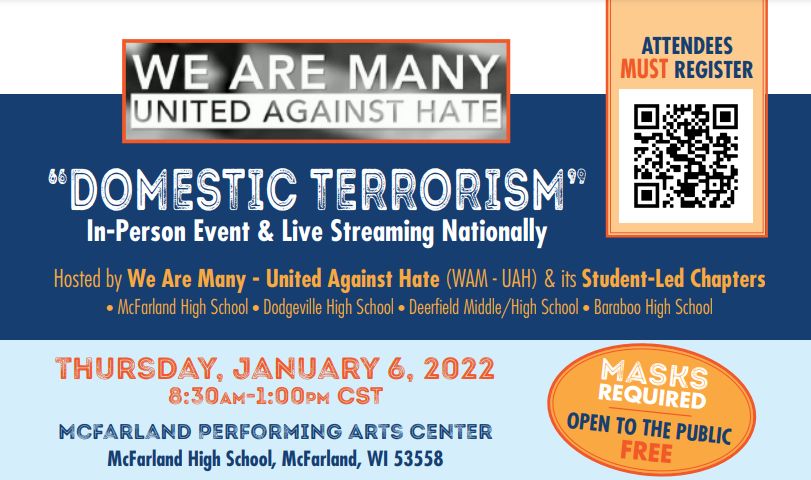
For the past few years, the terrorist attacks of 9/11 have been an event that people would often want to talk about with Masood Akhtar, a Muslim activist and community leader who founded a statewide, non-partisan movement called We Are Many – United Against Hate that focuses on teaching forgiveness and peace, addressing the root causes of hate, bigotry, and racism, and building inclusive communities while empowering youth.
This Thursday, however, We Are Many – United Against Hate has assembled a powerful group of speakers and activists who will spend the day focusing on domestic terrorism, specifically, the Jan. 6, 2021, attack on the United States Capitol Building.

“This time we have a much bigger problem which is our own internal issue that we have to deal with. Jan. 6 changed everything,” Akhtar, founder and president of We Are Many-United Against Hate, tells Madison365. “The people who did that were our own people – born in this country … according to new U.S. policy, they call them, rightly so, ‘domestic terrorists.’
“I’m more worried about a repeat of what happened on Jan. 6 if we don’t come together. My fear is, as of today, that we are not together,” he adds. “My feeling was that we would do a big event on the anniversary of Jan. 6 and start educating our people both in Wisconsin and nationally about what is at stake here so that everybody is up to speed.”
Akhtar started the grassroots movement “We Are Many: United Against Hate” as a non-partisan, non-profit, state-wide organization made up of common people who seek equal protection for all and are united against hate, bigotry and racism. Thursday’s event will be hosted by the organization and its student-led chapters in McFarland, Dodgeville, Deerfield and Baraboo high schools. The conversations, moderated by Wisconsin Attorney General Josh Kaul, will take place at the McFarland Performing Arts Center.

Dale Schultz, a former longtime Republican state senator in Wisconsin, will deliver the welcoming remarks. The keynote speaker for the event will be Thomas E. Brzozowski, the United States Justice Department’s counsel for domestic terrorism.
“He’s going to talk about the threat that they see internally and how they are going to deal with this and how they will work very closely with the state,” Akhtar says.
A student panel will talk about how they have been impacted by what they saw on Jan. 6 and what they plan on doing locally. This will include students from McFarland; Dodgeville; Deerfield, and Baraboo. The moderator will be Jeff Jacobson, liaison between WAM-UAH & student chapters.
A domestic terrorism panel will feature Daryl Johnson, one of the foremost experts on domestic extremist groups in the US. Beginning his career as a civilian in the US Army,
Johnson has held a number of government positions, most recently as senior analyst at the Department of Homeland Security. The panel will also feature criminologist and civil rights attorney Brian Levin, a professor of criminal justice and director of the Center for the Study of Hate & Extremism at California State University.
There will also be a panel of former hate group members including Jesse Morton, former Al Qaeda recruiter; TM Garret, former KKK Leader; Derek Barsaleau, former white nationalist; and Ryan Lo’Ree, a former Neo-Nazi.
“One thing that we will have at this event – and it’s something that we always do – is real live stories. That always has a powerful impact,” Akhtar says. “We have four people who were formerly part of national hate groups and they will come and share their experience of why they were part of that hate group, what happened in their lives, and what they are doing now to bring peace and education so that Jan. 6 never happens again.”

Akhtar stresses that his organization and Thursday’s event must be a non-partisan effort.
“People from both sides need to come together to condemn something that is bad whether it is done by white nationalists or ANTIFA. If they don’t come out and condemn it, that these people will say that it’s acceptable,” he says.
“This message on Jan. 6 is going to be very important. This is an opportunity we have right now to bring people together to save this country,” Akhtar adds.
Akhtar has founded and led multiple businesses in the Madison area and has also been actively involved with numerous community projects as a Muslim leader in Dane County. His organization has hosted many events to bring people together and he has written many articles and editorials on the subject.
“On December 30, 2015, I wrote a column in the Wisconsin State Journal where I said, ‘Despite all of our differences, I still believe that America is the best place on this earth to live and fulfill your dreams.’ If you asked me that same question today, I’m going to have a long pause about that because of what has happened in the last five years in this country,” Akhtar says.
“I was very optimistic that with the right strategies, freedom of speech, and people listening to each other, I felt like we could turn this around. And that’s what I’m putting a lot of effort into,” he adds. “I’m very optimistic that we can get back to where we were before.”
Akhtar has received the FBI’s National Director’s Community Leadership Award in May 2019. In 2017, Akhtar’s efforts were saluted by the Southern Poverty Law Center with a Certificate of Appreciation for his contributions to the ongoing fight against hatred and intolerance in America.
“I gave up my Indian citizenship 25 years ago because I believe in the American dream and I believe in the way people used to come together and work together. Unfortunately, I’m not seeing that,” he says. “And that really worries me about the fundamentals of this country. For me, this event is very important.
“I will be proposing an idea at the end of this meeting for us to think about us creating a Wisconsin partisan unity caucus where I want Republicans and Democrats co-chairing this and people from all types of backgrounds come together and meet regularly about issues and challenges and how we can all work together to make sure that Jan. 6 never happens again.”
The events of Jan. 6, 2021, created a crisis for many Americans. But Akhtar sees it also as an opportunity.
“If we don’t work together in a non-partisan way, I am more worried about where the United States is going to go in the future. So, yes, this is a big challenge. But it’s also an opportunity to come together and make sure that this never happens again.”



